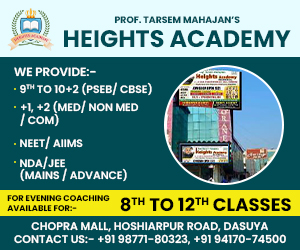
Guwahati (The Stellar News): India observes National Press Day on 16 November with an aim to pay tributes to everyone who contributed to the growth of print media along with its mentor & watchdog the Press Council of India (PCI). Moreover, it’s also an occasion for the practicing media persons to introspect seriously over their noble profession where it has actually been heading in the post-Covid-19 pandemic era.
Since its inception and functioning, the PCI continues to symbolize a free and responsible press in the largest democracy of the world. Among all press or media councils, functioning in various countries, the PCI is recognized as a unique entity that exercises authority over the media and also safeguards independence of the press. PCI was first constituted on 4 July 1966 as an ‘autonomous, statutory, quasi-judicial’ body with Justice JR Mudholkar, then a Supreme Court judge, as its chairman. Under the Press Council Act 1965, various relevant functions are being authorized for the PCI, such as helping newspapers to maintain their independence and building up a code of conduct for newspapers and journalists in accordance with high
professional standards.
It was Mahatma Gandhi, who articulated the concept of self-regulation, in which press councils or similar bodies were founded and still functioning. Under this noble concept, the sole aim of journalism should be the service to humanity. Till the last century, newspapers dominated the media scenario, but lately it has witnessed a drastic fall in the circulation of printed newspapers. The newspapers are actually struggling for survival after the invasion of television channels and digital media outlets. Arunodoi emerged in 1846 as the first newspaper in northeast India of our region. Today it witnesses the publication of a good number of morning daily newspapers in various languages. Sizable population of the region still depend on physical newspapers for necessary news content. Prior to the pandemic, Guwahati supported the publication of around 30 morning dailies with hundreds of periodicals in various languages.
But relentless corruption in the offices of proprietors and editors, with no promotional activities for the budding journalists where most of the editors maintained double identities (both as a journalist and a creative writer) for their excuses whenever there emerges a socio-political crisis and a visibly low space for the valued readers to make their points publicly when it is really necessary, etc have steadily ruined the sacred profession.
Once the quality internet becomes available to the common people, a large number of social media users start questioning the professional journalists, for which the media persons were seemingly not ready. Rejection to social media terming it a nuisance by a number of print-editors has deteriorated the situation. Even after claiming to maintain the circulation figure, the newspaper industry can not reclaim its earlier social influence. In the recent past, three Guwahati-based television journalists were named and shamed in social media as being beneficiaries of the multi-crore rupees scam in the updation of National Register of Citizens ( 2015 to 2019) in Assam. Luit Kumar Barman, a businessman turned prominent filmmaker, and Dipankar Devsarmah, a senior journalist, named those editor-journalists of satellite news channels in their facebook posts claiming that the scribes grabbed a huge amount of money, meant for the data entry operators.
For more than a month, the accused scribes-who started their career as print reporters-remain silent over the allegation (as if they have gone for hibernation), even though thousands of Facebook users urged them to clarify their position. They were aggressive supporters of the NRC draft in various public debates (reasons best known to them only),
even though it still faces many questions from its cut-off year (1971) to inclusion of hundreds of thousands of illegal migrants.
It has now surfaced that those journalists lavishly spent money in a city press club election to have a governing body of their choice. They made the electoral exercise a visibly expensive affair for Guwahatian residents, where a large number of journalists were lured with personal benefits to fulfill a secret mission to deprive many responsible scribes from participating in the process. Even they spread rumours having active support from a powerful politician in their mission. Amazingly at the present time of crisis, only a few media workers are seen with them. Now where will be the PCI, which has no authority over news channels and digital outlets, to enhance the overall media scenario !











